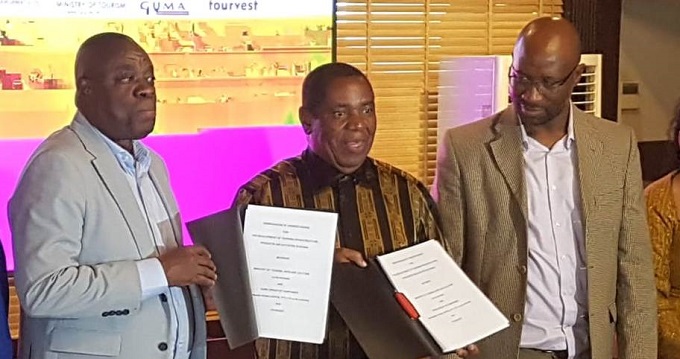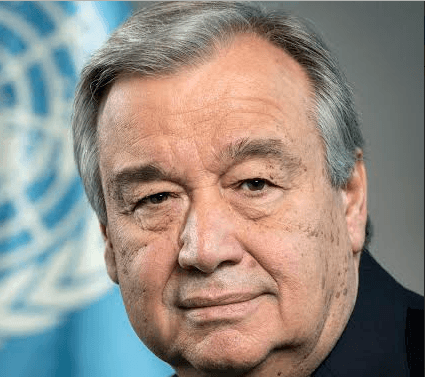
Time was when tourism merely involved the movement of people from one place to another in the pursuit of pleasure and recreation. Often just happy sightseeing and sometimes, for business purposes, attending conferences or engaging in trade.
The concept is shifting rapidly from this traditional meaning of it being just a social, cultural and economic phenomenon. What is commonly referred to as ‘sustainable tourism’ which focuses on the interests of all stakeholders, not just the tourist, is gradually giving way to a new school of thought that’s championing a vital new approach to growing tourism. It is known as ‘Meaningful Tourism’.

It encourages a more holistic approach with practical tools for destination planning and development, helping destinations, organisations and communities to adapt to the changes in demand, the growing influence of new technologies and the results of climate change.
Superintended by the Meaningful Tourism Center of the London-based Institute of Tourism, it is a global ‘Voice for Insight and Change in Tourism’, and Ghana’s Emmanuel Frimpong is the proud African representative of the global school, certified as a ‘Trainer of Trainers’.
He recently presented a paper on ‘Meaningful Tourism for the Development of Sustainable Tourism in Africa’ at the institute’s latest webinar for ‘Meaningful Tourism Economy – A Vision For A Sustainable Future’, where he shared some insightful ideas. PaJohn Dadson listened in.
Tourism is now recognised as a meaningful experience, a phenomenon that contributes to the well-being and prosperity of host communities and protecting the environment.
While it allows individuals to explore new places and cultures, it can have both positive and negative impacts on the environment, local economies and communities; thus, it requires responsible management to minimise harm.
There’s no single ‘panacea’ for the complex issue of tourism gentrification or imbalance; but a combination of strategies, as proposed in the Meaningful Tourism approach, can help mitigate its negative impacts and foster a culture of sustainable and responsible tourism practices.
More than just a pleasant vacation, Meaningful Tourism is the way to go for global tourism to survive and thrive in a sustainable and profitable way.
Developed by the founder of the Meaningful Tourism Centre, Prof. Em. Dr. Wolfgang Georg Arlt FRGS FRAS, and recently being incorporated into the Vision statement of PATA – Pacific Asia Travel Association – as A Meaningful Pacific Asia Tourism Economy, the webinar introduced the main elements of the Meaningful Tourism paradigm and regional examples from certified trainers of the Meaningful Tourism Transformational Game Workshop from different continents.
In Africa, the emergence of tourism’s significant economic impact and influence has seen phenomenal growth, particularly after a rebound in 2021 following the COVID-19 pandemic, generating significant foreign exchange earnings, creating jobs and stimulating local economies.

Meaningful Tourism, as a concept, shifts the focus from solely supply-side concerns (like sustainable practices) and restriction-based responsible tourism to a holistic approach that considers both demand and supply, and aims for positive outcomes for all.
It prioritises the impact of tourism on all stakeholders, including guests, host communities, employees, companies, governments and the environment.
In the true sense of sustainable tourism, meaningful tourism plays a crucial role in the development of Africa by promoting cultural preservation which leads to economic benefits that contribute to opportunities for the growth and transformation of local communities.
It emphasises responsible practices that minimise negative impacts while maximising positive ones for environment protection and cultural integrity.
“Meaningful tourism has a human-centred approach to tourism that focuses on mutual respect and value creation for both tourists and host communities. It is pivoted on authentic experiences that benefit the local economy,” notes Frimpong, who is also the founding President of the African Tourism Research Network and Vice President of Africa Medical Tourism Council.

For Emmanuel, it is how meaningful tourism encourages “community engagement and responsible practices, such as using eco-friendly accommodations, creating eco-conscious itineraries and educating visitors about the environment and local culture,” that excites him about the approach.
“This essentially promotes ‘inclusivity and equity’, ensuring that all members of the community, including women, youth and marginalised groups, benefit from the industry,” he further emphasiess.
Considering the relatively untapped tourism sectors in Africa, such as religious pilgrimages, business and trade expos, sports events, gastronomy, adventure and wilderness experiences, wellness retreats, educational tours and humanitarian travel, embracing the meaningful approach to destination management is critical to achieving greater successes in tourism on the continent.
Commending such community-based initiatives, including eco-tourism and conservation programmes being practised in some countries like Kenya’s Maasai Mara community-led safari experiences, Namibia’s community conservation and wildlife tourism and Ghana’s cultural heritage routes and festivals, Frimpong believes more capacity building and education will help with their economic viability.
He shares that meaningful tourism only serves to “empower local communities, enhance visitor satisfaction and reduce tourism leakage”, where a significant portion of the revenue generated by tourism flows out of the destination’s local economy and into the pockets of companies or countries outside of the host destination.
He points out that policy and governance gaps, a lack of awareness and training and cultural commodification risks – the practice of turning cultural elements into commodities for sale and profit, mostly for tourists, without recourse to how it erodes cultural significance – are some of the areas that need improvement in order to achieve policy alignment with sustainable development goals.
Particularly important is public-private partnerships which can help accelerate training and capacity building, infrastructure development as well as provide much needed investment with monitoring and evaluation frameworks. The meaningful approach can only lead to innovation and an increase in management efficiency as the community becomes more involved in the participating of tourism activities. This makes them feel more connected to their community.
Tourists, becoming more aware, also show up with more responsible behaviour and value the communities they visit. Meaningful tourism, as a pathway to sustainability, calls for collaborative efforts.
Hopefully, it will be well embraced so as to help sustain tourism’s contribution to job creation, social integration, preservation of natural and cultural heritage, biodiversity conservation, livelihoods and improved human well-being in Africa.
The post Meaningful tourism: A panacea for the overlaps of tourism imbalance appeared first on The Business & Financial Times.
Read Full Story










![Woman cries over missing 'momoni', beef from luggage, accuses KIA staff of theft [video]](https://sportal365images.com/process/smp-images-production/pulse.com.gh/19052025/bdad84a7-5dbb-449d-843d-51ddf0786681.png)









Facebook
Twitter
Pinterest
Instagram
Google+
YouTube
LinkedIn
RSS